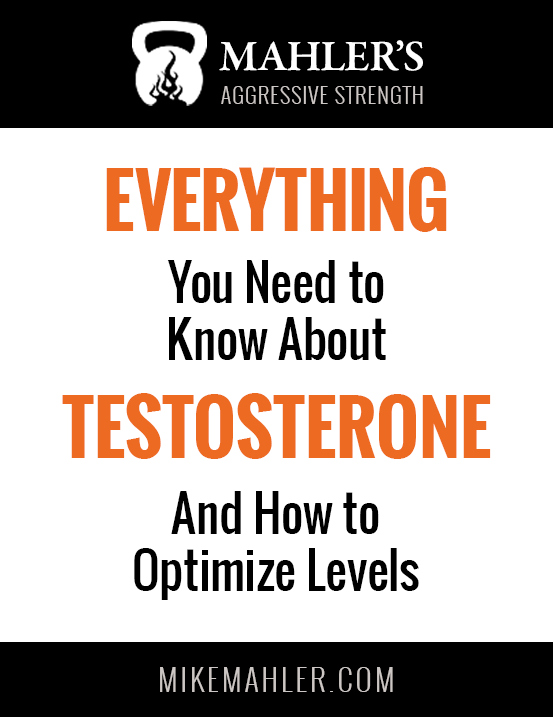By Charles Poliquin www.charlespoliquin.net
One of the reasons that we work so hard in the gym is to ensure that we optimize all of the body’s functions. As much as we want fantastic pectorals and abdominals, we want to build better brains as well.
Phosphatidyl serine (PS) is a nutrient essential for optimal brain function. Because PS is crucial for the overall health of brain cells, research on PS has shown that it benefits a wide range of brain activities. (1) (Note: bracketed numbers refer to cited references at the end of the article.)
There are no foods especially rich in PS, except for animal brains (which nowadays cannot be recommended as a food!) As a result, PS supplementation is the only way to increase your levels of this valuable brain nutrient. The body can make PS, but in far from optimal quantities. It also produces less as we age.
HOW PS BENEFITS MEMORY AND RECALL
Memories are formed when a group of brain cells—neurons—talk to each other. Together, neurons create a memory of an event, such as where the keys are, where you put the remote control, or where you parked the car. In order for memories to be both formed and recalled, neurons must talk to each other. Without PS, such communication among neurons is difficult if not impossible. With PS, neurons communicate more effectively. That is why PS has such positive effects on memory, recall, and overall brain function.
HELPING AGE-RELATED MEMORY LOSS
As we age, most of us lose some memory function. PS may help to reverse or slow this process. (2) Seventy-five patients with age-related memory impairment were given 300 mg of PS per day for 12 weeks. PS led to improved performance tests related to learning and memory tasks of daily life. (3) Another study of thirty-three patients with dementia showed equally promising results. This 8-week study of 300 mg per day of PS showed that PS can significantly improve overall brain wellness in those with dementia. (4)
SLOWING ALZHEIMER’S DISEASE
Alzheimer’s disease is a debilitating ailment that destroys the memory of older adults. While there is no cure for Alzheimer’s, nutrients like PS may help slow the progression and even reverse some of the symptoms of this disease. (5-7) Eighteen patients with Alzheimer’s disease given 400 mg of PS per day for 6 months experienced a wide range of positive effects on memory and recall. (8) Twenty-five patients with Alzheimer’s disease given 300 mg of PS for 12 weeks also saw improvements in brain function. This study also showed that PS may have the most benefit when given in early stages of Alzheimer’s. (9)
RELIEVING DEPRESSION
The effects of phosphatidyl serine on cognitive, affective and behavioral symptoms were studied in a group of 10 elderly women with depressive disorders. Patients were treated with placebo for 15 days, followed by PS at 300 mg/day for 30 days. PS induced consistent improvement of depressive symptoms, memory and behavior. (10)
HOW TO TAKE PS
The best time to take PS is post-workout because it lowers cortisol. Some people claim it is a brain energizer, so that it should be taken BEFORE workouts. From experience, I found this not to be true. Personally, I use it mostly in the evening to mitigate highly elevated cortisol.
If you are taking PS to treat any medical condition, or are taking medications, especially psychotropic medications, it is advisable to take PS with the guidance of your health care practitioner. PS is derived from soy and is suitable for vegetarians. The beneficial level of intake of PS according to human research is anywhere from 100-800 mg per day. Most studies in humans where PS has been used to optimize brain function used 300 mg of PS per day. After an initial loading phase with PS, long term supplementation at 100 mg per day may be sufficient for most adults to maintain optimal brain levels of PS.
I always bring PS on my overseas trips, using it as a sleep aid; I take 800 mg at my last meal. I find it helps bring me down from an energetic day of teaching. I use the powdered form in that case, as it is more economical. When I take it post workout, I prefer to use the capsule form as I can just carry them in my pill bag.
To obtain both forms of PS, contact Judith@charlespoliquin.com.
References
- Pepeu, G., I.M. Pepeu, and L. Amaducci, A review of phosphatidylserine pharmacological and clinical effects. Is phosphatidylserine a drug for the ageing brain? Pharmacol Res, 1996. 33(2): p. 73-80.
- Lombardi, G.F., [Pharmacological treatment with phosphatidyl serine of 40 ambulatory patients with senile dementia syndrome]. Minerva Med, 1989. 80(6): p. 599-602.
- Crook, T.H., et al., Effects of phosphatidylserine in age-associated memory impairment. Neurology, 1991. 41(5): p. 644-
- Engel, R.R., et al., Double blind crossover study of phosphatidylserine vs. placebo in patients with early dementia of the Alzheimer type. Eur Neuropsychopharmacol, 1992. 2(2): p. 149-55.
- Amaducci, L., et al., Use of phosphatidylserine in Alzheimer’s disease. Ann N Y Acad Sci, 1991. 640: p. 245-9.
- Amaducci, L., Phosphatidylserine in the treatment of Alzheimer’s disease: results of a multicenter study. Psychopharmacol Bull, 1988. 24(1): p.130-4.
- Funfgeld, E.W., et al., Double blind study with phosphatidylserine (PS) in Parkinsonian patients with senile dementia of Alzheimer’s type (SDAT). Prog Clin Biol Res, 1989. 317: p.1235-46.
- Heiss, W.D., et al., Long-term effects of phosphatidylserine, pyritinol, and cognitive training in Alzheimer’s disease. A neuropsychological, EEG, and PET investigation. Dementia, 1994. 5(2): p. 88-98.
- Crook, T., et al., Effects of phosphatidylserine in Alzheimer’s disease. Psychopharmacol Bull, 1992. 28(1): p. 61-6.
- Maggioni, M., et al., Effects of phosphatidylserine therapy in geriatric patients with depressive disorders. Acta Psychiatr Scand, 1990. 81(3): p. 265-70. in Alzheimer’s Patients

